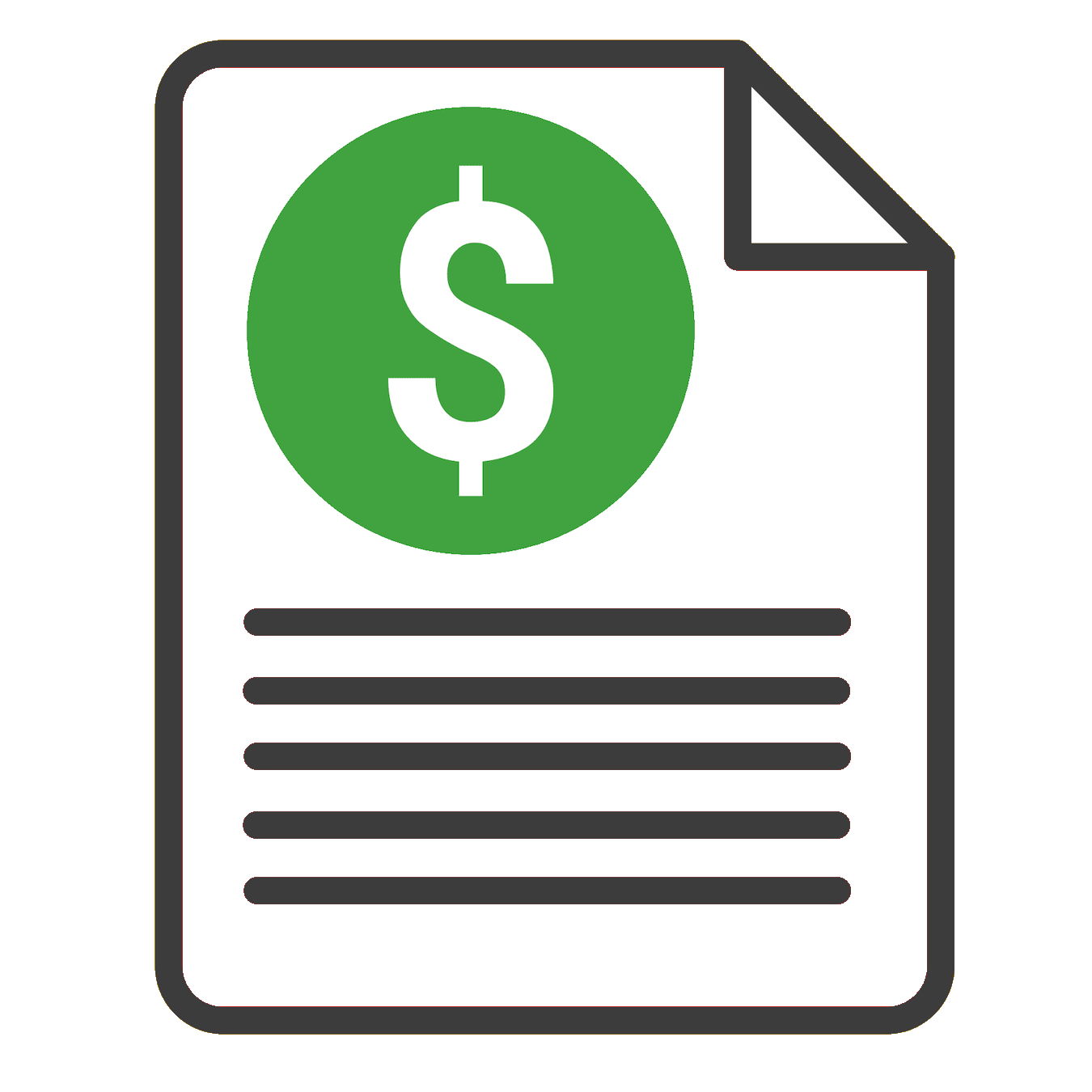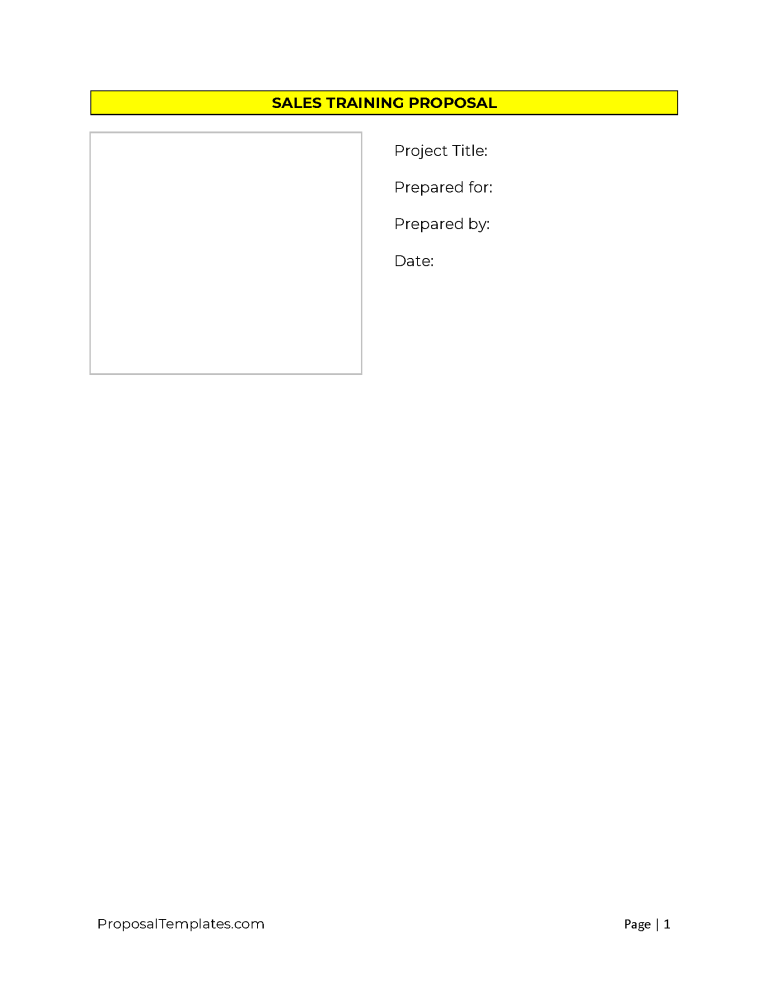Sales training proposals present a way to improve a salesperson’s or sales team’s profitability. The sales training agency presents its methodology together with project costs through this formal document.
Types Of Sales Training Proposals (12)
- Budget And Cost Breakdown – A proposal containing detailed cost, expense, and fee breakdowns for the sales training clients.
- Customer Service Training – Proposals focusing on a sales training program curriculum to improve customer interactions and closings.
- Customized Sales Training – A proposal for a sales training program addressing specific topics since it is at a client’s request.
- General Sales Training – A wide-reaching proposal promoting an agency’s sales training techniques to improve a client’s sales team.
- Negotiation Skills Training – A proposal presenting a training program to improve a salesperson’s ability to close with better terms.
- Presentation Skills Training – Proposals featuring training programs that dramatically improve a salesperson’s communication and organization.
- Product Training – Proposals explaining the sales training program to improve a sales team’s ability to sell new products.
- Sales Certification Program – This proposal promotes certification training programs for salespeople and will specifically discuss their criteria.
- Sales Leadership Training – A proposal presenting training programs focused on sales leadership skills such as team management and coaching.
- Sales Technique Training – Proposals concentrating on sales programs promoting a specific sales approach (i.e., solution selling, consultative selling).
- Sales Training ROI – A proposal discussing the metrics involved whenever evaluating a training program’s effect on a client’s profit.
- Sales Training Scheduling/Logistics – A proposal displaying the scheduling, locations, and other factors to define a training program’s execution.
1. Cover Page
Develop a cover page with the proposal’s title and date as well as the name and logo of the sales training team behind it. Also, display the sales training agency’s and client’s contact information.
Proposal, Proposal Date And Author
Sales Training Company Name, Logo
Sales Training Company Contact Information, Website
Graphics, Slogan, Executive Summary Or Table Of Contents
Client Name, Logo, And Contact Information
2. Introduction
Compose an upbeat introduction to the sales training agency as well as its services. Consider this area a first impression; thus, convey enthusiasm for putting the training program to work for the client.
Introduction Statement
Objectives, Familiarization
Client Understanding, Goals, Challenges
Services, Packages, Solutions
Contact Information, Call To Action
3. Client Needs Analysis
Demonstrate the sales training agency’s comprehension of the client’s needs and history accordingly. In essence, display a marked interest in discussing the client’s past sales problems and solutions.
Client Background, Needs Assessment
Challenges, Pain Points, Goals
Target Audience, Competitive Analysis, Customization
ROI (Return On Investment), Training Approach
Key Deliverables, Timeline, Budget
4. Objectives
Discuss the training program objectives in detail. For example, explain how the program will align with improving sales skills, team morale, customer satisfaction, and revenue.
Measurable Goals, Timeframe
Priorities, Target Analysis
Strategy Alignment, KPI’s (Key Performance Indicators)
Benchmarks, ROI Goals And Expectations
Client Input, Feedback, Flexibility
5. Proposed Training Solution
Produce an in-depth discussion on how the training program can achieve the client’s objectives. Specifically detail the sales program’s methods (i.e., seminars, coaching, e-learning).
Training Objectives, Curriculum, Methods
Training Schedule, Qualifications, Materials
Customization, Assessment, Evaluation
Technology, Tools, Support, Follow-Up
Measurable Outcomes, Budget, Acceptance Criteria
6. Training Topics And Curriculum
Engage a discussion on the training program’s curriculum together with its goals and the sales team. That is, lay out the skills or experience the program participants will have upon completion.
Training Objectives And Modules
Delivery Method, Training Schedule
Roster, Trainers, Instructors
Assessment, Evaluation, Client Role
Cost, Pricing, Materials, Resources
7. Training Methodology
Present the training program’s approach together with the techniques engaged. Identify the tools required, such as laptop minimum requirements, and how training will be delivered (i.e., online, in-person).
Instructional Approach, Content delivery, Customization
Training Materials, Interactive Elements
Analysis, Evaluation, Learning Outcomes
Schedule, Duration, Trainers, Instructors
Support, Resources, Client involvement, Conclusion
8. Training Schedule
Deliver the training program’s calendar for the client, explicitly documenting its start and completion dates. More specifically, display when, where, and how long each training session is as well as important dates.
Introduction, Training Start Date, Duration
Session Frequency, Session Duration
Breaks , Intermission, Training Format, Location
Topics Covered, Homework Assignment, Assessment Date
Client Feedback, Session, Flexibility, Conclusion
9. Trainer Qualifications
Lay out the sales trainer’s (or facilitator’s) expertise, explicitly promoting their credentials. Present their success stories together with the certificates or awards they may have earned.
Trainer Profile, Relevant Experience, Certification
Accreditations, Teaching Philosophy, Client Testimonials
Case Studies, Trainging Methodology Alignment
Commitment To Ongoing Learning
Contact Information, Conclusion
10. Customization
Describe the ways the training program can be tailored to the client’s objectives, particularly those with cost-saving measures. In fact, provide examples of any popular customizations if possible.
Client-Specific Content, Needs Anaylysis And Assessment
- Role-Specific Training, Company Culture, Values
- Sales Process Integration, Learning Preferences
- Language/Terminology, Scalability, Feedback Loop
- Module Flexibility, Customization, Timelines
11. Assessment And Evaluation
Explain the criteria for evaluating the program participants in detail. For example, present the assessment process and requirements for completion.
KPI’s, Data Collection Techniques, Reporting Frequency
Data Analysis, A/B Frequency, Performance Benchmarks
Feedback Mechnisms, Adaptability
ROI Analysis, Client Involvement
Optimization, Conclusiont
12. Resources And Support
Define the references, coaching, as well as other supporting materials for program participants. For instance, present detailed samples and media of the training materials or online resources.
Dedicated Account Manager, Communication Channels
Availability, Monitoring, Updates
- Performance Analysis, Client Training, Creative Resources
Technical Support, Client Portal, Client Responsibilities
Client Feedback, Access To Professionals
13. Pricing And Payment Terms
Deliver a full report on the cost of every session in addition to displaying their total. Build trust with the client with an easy-to-read report on the training program’s fees and expenses.
Package Descriptions, Pricing Structure
Payment Schedule, Payment Methods, Policies
Taxes, Fees, Changes, Relevant Dates
Legal Requirements, Agreement Provisions
Itemized Costs, Total Cost
14. Sales Training Terms And Conditions
Supply every agreement required for the training program while also explaining them. For example, define payment terms and cancellation policies.
Client Responsibilities, Sales Training Provider Obligations
Duration, Termination Clause, Intellectual Property
Confidentiality, Indemnity, Amendments, Force Majeure
Governing Laws, Dispute Resolution
Signatures, Non-Solicitations, Attachments
15. Client References
Present testimonials and references that are significantly favoring the training program. This may prove especially useful in the client’s evaluation of the program’s effectiveness.
Testimonials, Case Studies, Client Contact Information
Industry Diversity, Relevance To Proposal
Visual Elements Permission, Consent
Anonymized References, Quoted Gratitude
Call To Action, Privacy Statement
16. Sales Training Call To Action
Bring the previous sections together in a summary while reiterating the program benefits. Close this correspondence on an encouraging note since this encourages the client’s involvement.
Summary Of Proposal, Client’s Needs Recap, Benefits
Value Propositions, Reinforce Expertise
Gratitude, Call To Action, Contact Information
Availability, Reiterate Benefits
Closing Statement, Signature, Enclosure
17. Contact Information
Attach the sales training agency’s contact information to the closing since it may prompt a response. Also, include the hours when the agency can receive calls or visitors.
Agency Name, Address, Phone Number
Email Address, Website, Social Media
Business Hours, Contact Person
Additional Contact Information, Emergency Contact
Map, Languages, Logo and Branidng

